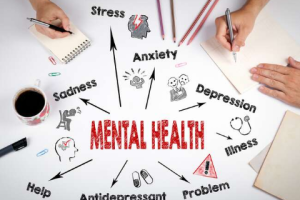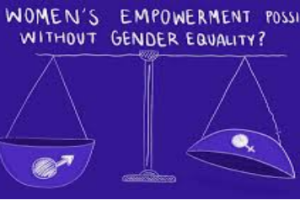
BY MENGISTEAB TESHOME
Reports confirm that gender asset and payment gap remain undone homework; and unclosed chapter in most of the global countries, especially in developing countries.
Though several decades have already elapsed since efforts have started to counteract stereotypes and prejudice against women and to ensure gender equality by empowering women socially, economically and politically, ensuring equitable resource management, millions of women are still suffering from the visible and invisible hands of gender inequality. Needless to say when women have access to assets, families grow well, communities thrive and countries prosper. However, unluckily, many women, mostly, women of developing countries, are still encountering challenges in acquiring assets.
The case is not different in Ethiopia. Several women are still living in poverty for this same reason, mostly in rural parts of the country. Particularly, absence of any mechanisms to understand, identify and control the matter [gender asset ownership] has left the problem to be sun addressed gap. As part of efforts, the first ever Ethiopian Gender Asset Gap Survey report that is said vital to analyze the gender gap in asset ownership and wealth, and to bridge gender asset gaps, was issued recently, ENA reported.
According to Director General of the Ethiopian Statistics Services, Beker Shale, even if Ethiopia adopted several global, regional and national initiatives that advocate for women’s property rights, lack of appropriate data has made monitoring the effectiveness of these laws and policies in promoting women’s property rights difficult. In this regard, the findings of the survey will have greater significance in curbing the challenges. “The main objective of the survey was to analyze the gender gap in asset ownership and wealth, in addition to intra household dynamics”, remarked the Director General.
As the survey revealed, about 84% of women and 86% of men own residences, which is consistent with the fact that Ethiopia is an agrarian economy. Likewise, 69% of women and 73.1% of men own agricultural land, while 75.3% of women and 76.2% of men own livestock. The largest men-women gap in asset ownership among the principal assets was observed for financial assets, which was 32 percentage points, followed by other real estate at 8%. However, the share of women in terms of financial asset ownership is as low as 34% when compared to 66% share of men owners, the survey indicated.
While stating the decision making role of women at home, the report further indicated that, women’s decision-making role in family management, finance, rural and urban land, house ownership and other issues is getting improved, the Agency recounted. The Ethiopian Herald also held an exclusive interview with Wondwosen Ayalew Psychology Department Instructor at Arba Minch University; and PhD student at Haramaya University to have his insights on ways to unlock the gender asset gaps. According to him, the gender asset gap refers to the disparity in asset ownership between men and women, which is a major issue in many parts of the world. This gap is particularly prevalent in developing countries, where women often face significant barriers to owning land, property and other assets.
“The gender asset gap has serious implications for women’s economic empowerment, as well as for broader social and economic development.” He also noted that, one of the key reasons for the gender asset gap is that women face discriminatory laws and social norms that limit their ability to own and control assets. In many countries, for example, women are not allowed to own or inherit land, or they may only be able to do so under certain conditions, such as being married or having male children. This makes it difficult for women to build up assets and use them as collateral for loans or other financial transactions.
Another factor that contributes to the gender asset gap is the gender pay gap, which means that women often have less money to invest in assets than men. This can make it difficult for women to acquire assets, build up wealth over time and empower themselves economically. Speaking on ways to address the challenges, he said awareness is a key factor in addressing the gender asset gap. “By raising awareness about the issue, we can help to shine a light on the discriminatory laws and social norms that perpetuate the gap, and work to change them. This can involve working with governments and other stakeholders to reform laws and policies that recognize the rights of women. Equally, promoting gender equality and women’s empowerment more broadly is essential.”
In addition to addressing legal and policy barriers, it is also important to equip women with the required knowledge and skills that help them to acquire and manage assets in a wise manner. This can involve providing financial literacy training, as well as training on how to negotiate and advocate for their rights. What is more, it is also central to working with financial institutions to develop products and services that are tailored to the needs of women, such as microfinance and savings accounts. Another important aspect of addressing the gender asset gap is to challenge gender stereotypes and norms that limit women’s economic opportunities. This can involve promoting women’s leadership and entrepreneurship, as well as challenging harmful beliefs and attitudes about women’s roles in the overall development of the country and their capabilities.
Finally, it is important to recognize that addressing the gender asset gap requires a coordinated and multi-faceted approach. This includes working with a range of stakeholders, including governments, civil society organizations, financial institutions, and communities themselves, to address the underlying causes of the gap and promote gender equality more broadly. The Gender Asset Gap Survey, which was conducted last year, was initiated and implemented by the Ethiopian Statistics Services with financial and technical support from UN Women, the World Bank and the government of Ethiopia.
THE ETHIOPIAN HERALD TUESDAY 6 JUNE 2023





